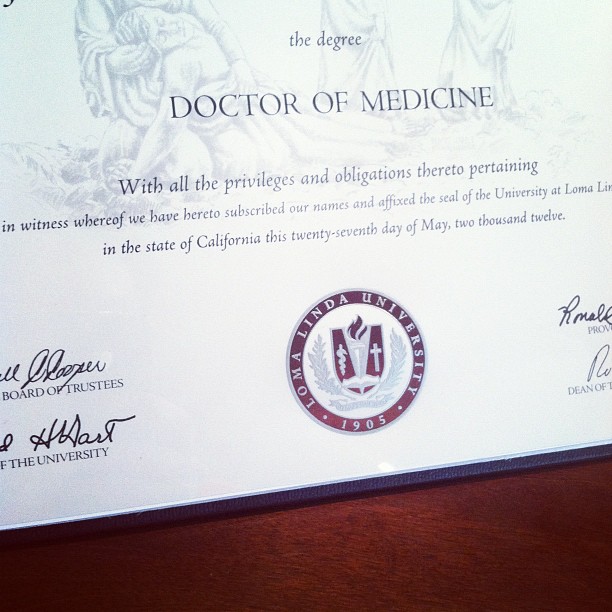She was an elderly woman; I’ll call her Helen1. Her hair was silver. She smiled pleasantly as I walked up to her bed in the emergency department. But her eyes betrayed her. Her eyes were dark and solemn. When I asked Helen how she was doing, she told me she was “alright.”
I picked up her chart and noted that it was her first time here. Fortunately, though, she had brought her records from her previous hospitalizations. We discussed why she had come, what had previously been done for her at the other hospital, and what her goals were now.
She had been recently diagnosed with advanced, metastatic cancer. I learned that her oncologist had wanted her to get a PET scan — a scan that would allow them to see the extent of her metastasis. I also found out that the reason she had come to my hospital (or maybe I should say the hospital I work at) is that she had lost her home in a city over an hour away. With no other options, she had moved in with her younger, widowed sister who lived just down the street. And now, she presented to this emergency department. Because this was the closest, large hospital. I also learned that a big reason for coming into the hospital is that her sister just couldn’t take care of her. The patient needed help. Her sister needed help.
We admitted Helen and over the next few days ordered a few tests and reviewed outside records. We knew she had a fluid collection in her lungs (pleural effusion), but we didn’t feel it necessary to put her through the risk of a procedure as she was breathing well without any oxygen. We got our Oncology service involved and they actually scrapped the idea of doing a PET scan. They said it wasn’t necessary. Reviewing outside records they already knew this was metastatic cancer — a PET scan would no longer change management of therapy at this point.
I remember walking in to see Helen shortly after I was notified by the Oncology resident that they had already spoken to her with her options. The Oncology resident told me that their note was in the chart. Of course, I reviewed it before I went in.
As Helen lay in her bed, I asked her if she had been seen by oncology already and if they had talked to her about what could be done. I knew the answer already, but I often let my patients tell me. Sometimes it’s a good thing as this allows me to get an idea if they actually understand the situation.
In Helen’s case, she understood — for the most part. She told me that there were two options: chemotherapy or no chemotherapy. If she received chemotherapy she would probably live about 1 year and have to go through side effects. If she chose not to have any chemotherapy, she wouuld have about 6 months. What the oncologist had said was that for patients with her scenario, the mean survival was 6 or 12 months depending on therapy vs non-therapy.
I suppose it’s common for patients to hear phrases like “mean survival” and forget that we are talking about averages. They apply it specifically to their own case. It makes sense. I’d probably do the same thing. But there’s a reason most doctors never give out solid predictions. We give ranges on purpose. We understand that patients never read textbooks — and so they present in strange ways or with little variations and surprises.
I stood at her bedside. Silence filled the air. Helen offered up another smile and said, “It’s ok. I’m 88. I’ve had a good life.” All I could do was offer up a smile. She told me she was leaning towards no chemotherapy. She didn’t like the idea of all the side effects. But she would have to talk to her family first. She would call them and give her answer to the oncologist in a week’s time.
I nodded. We had found a nursing facility for her to go to. There was nothing we could offer her at this point other than some pain medication for the pain she had in her chest. I couldn’t help but think that she should have come in sooner. But would it have made a difference? What if she had come in before the cancer had spread anywhere? Would she have chosen chemotherapy then? Would her old, frail body have taken those medications? Would she have been able to afford the treatment?
Too many “what if’s.” Too many “too’s.” Too late. Too old. Too much.
I said goodbye to Helen. She would be discharged the next day and I was going to be off. I wished her the best. I reminded her to follow up with Oncology in a week. Little did I know, I would be seeing her again too soon.
To be continued…
- see Privacy Policy [↩]





